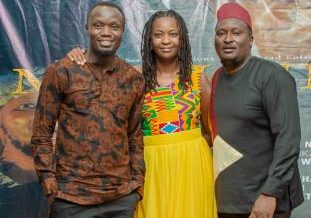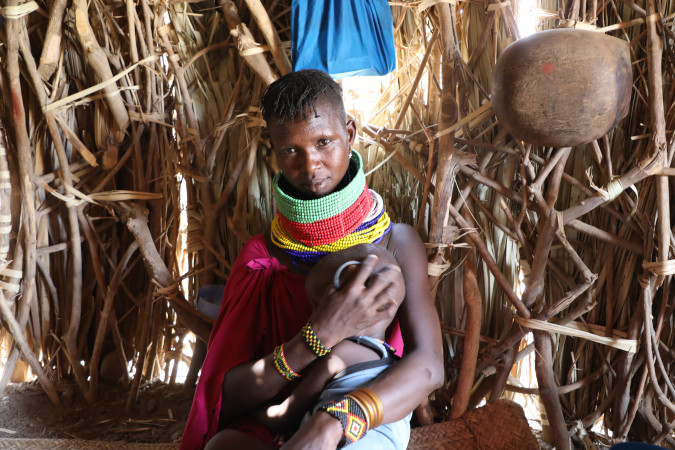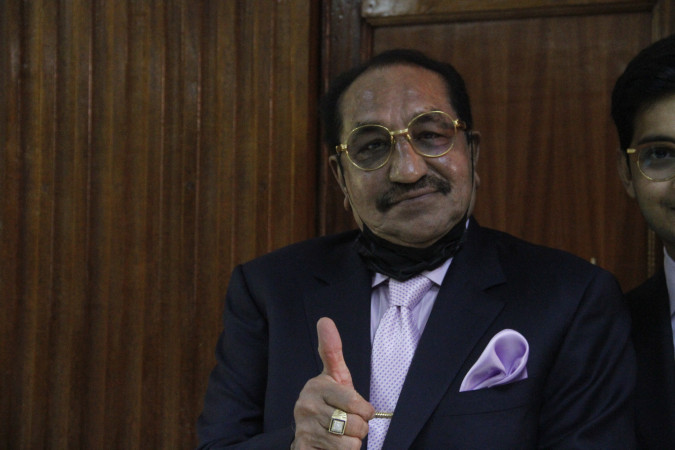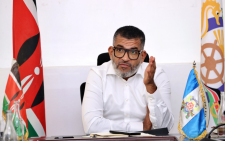Kenyan Producers team up to make exciting Kiembu film

Betty Kathungu-Furet, a renowned Kenyan producer, had always wanted to do a film in Kiembu. She teamed up with Peter Kawa and Edijoe Mwaniki to make this dream a reality by making Medicine Man in late 2021. The full-length feature film seeks to examine the role of herbal medicine and traditional healers in an increasingly westernised world.
While the film was predominantly filmed in Embu and the main language of the film is Kiembu, the film has a national outlook as traditional healers were and still are a mainstay in most African communities. Medicine Man also features a bit of English and Kiswahili with subtitles to ease with comprehension.
The team of three met and storylined the film over a few days. Edijoe was then tasked with scriptwriting the story in readiness for filming. He came up with a 96-page first draft, which he then whittled down to a 66-page second draft within a few days. He has been scriptwriting for close to a decade now, having taken a segue from acting into writing theatre and short film scripts in 2013. He has written multiple works such as Run, Still, Witness, Torture, Life Guard, Lost, Lost in Time, Behind the Scene, and Mr Amu the Pilot among others. In 2019, he wrote and directed Lost in Time, which won five Kalasha awards among them in scriptwriting. But what inspires him to keep writing? Where does he get the stories?
Impactful stories
“Medicine Man is a Betty Kathungu-Furet original story. I, therefore, just came in for the technical part of the scriptwriting. I love writing stories that have impact; stories that spark conversations and push people to take a closer look at themselves. The interesting thing is that stories are everywhere; you just have to be keen enough to notice them. They are in our own lived experiences, in our friends’ stories, in the things we observe while we are going on with life. Films just tends to zoom in on these experiences and give us a front-row seat to the action,” Edijoe the writer and director shares with Spice.
When Pish Kago saw the script, he was fully sold. Kago is the main protagonist in the film. He plays Muriithi, a learned doctor who is also trained in traditional herbal medicine. His character goes back to the village to do research on the many potent herbs surrounding his village, only to find that his blood brother had deviated from traditional healing practices to a more commercialised version.
Kago shares that he loved playing the character although embodying the character’s softer qualities such as his romantic tendencies towards the woman he ends up marrying in the film was hard to embody.
“I have been in the industry for close to 10 years now. I love acting and playing different characters, as I believe storytelling is one way of advancing society and sparking dialogue on issues that we would otherwise never discuss. I loved playing Muriithi. For me, I hope people watch the film and get at least a few lessons from the multiple themes in the film. I hope they learn to never give up no matter the obstacle—that was the driving force behind my character,” Kago elaborates.
Where to watch
Peter Kawa helped produce the film. He also gets a cameo role in the film. He shares that the filming was hard, though partners such as the Kenya Film Commission helped in easing the journey. The film premiered at Anga Cinemax in December 2021, and Kago intimates that preparations are in top gear to premiere the film in Embu from March 4 to March 6, this year.
“The journey was gruelling. It took us 35 shoot days and close to three months of post-production. There were plenty of challenges, but we learn best from challenges. We all knew what we wanted and did the best we could to actualise the overarching dream.
“Showing the film in cinemas and having people still watching it from My Movies Africa where it is still available online worldwide is a humbling experience that makes the gruelling film work worthwhile,” says Kawa.
Betty—whose other productions include Wangai’s Cross (2005), Kizingo (2016) and Family Meeting (2019)— says the inspiration behind the film’s making stemmed from a visit she made to her village.
“The film explores the relationships between modern medicine, herbal medicine and African science, sometimes called witchcraft. It was inspired during a visit to my home town in Runyenjes, Embu, where I was told unbelievable stories about witchcraft and herbal medicine and my interest was sparked,” she says in conclusion.















